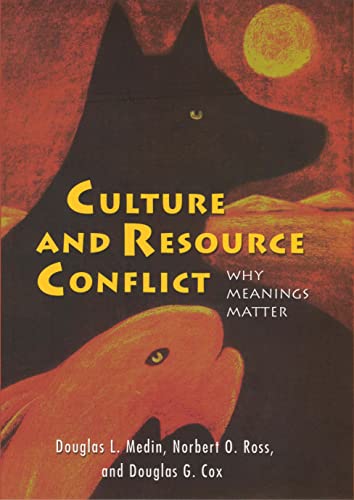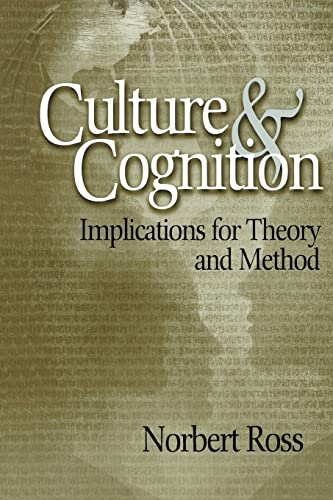Books by Norbert Ross
Culture and Resource Conflict: Why Meanings Matter
Author(s): Douglas L. Medin, Norbert O. Ross, Douglas G. Cox
Publication date: 2006-08-31
ISBN: 0871545705, ISBN-13: 9780871545701
In a multi-cultural society, differing worldviews among groups can lead to conflict over competing values and behaviors. Nowhere is this tension more concrete than in the wilderness, where people of different cultures hunt and fish for the same animals. White Americans tend to see nature as something external which they have some responsibility to care for. In contrast, Native Americans are more likely to see themselves as one with nature. In Culture and Resource Conflict, authors Douglas Medin, Norbert Ross, and Douglas Cox investigate the discord between whites and Menominee American Indians over hunting and fishing, and in the process, contribute to our understanding of how and why cultures so often collide.
Based on detailed ethnographic and experimental research, Culture and Resource Conflict finds that Native American and European American hunters and fishermen have differing approaches—or mental models—with respect to fish and game, and that these differences lead to misunderstanding, stereotyping, and conflict. Menominee look at the practice of hunting and fishing for sport as a sign of a lack of respect for nature. Whites, on the other hand, define respect for nature more on grounds of resource management and conservation. Some whites believe—contrary to fact—that Native Americans are depleting animal populations with excessive hunting and fishing, while the Menominee protest that they only hunt what they need and make extensive use of their catch. Yet the authors find that, despite these differences, the two groups share the fundamental underlying goal of preserving fish and game for future generations, and both groups see hunting and fishing as deeply meaningful activities. At its core, the conflict between these two groups is more about mistrust and stereotyping than actual disagreement over values.
Combining the strengths of psychology and anthropology, Culture and Resource Conflict shows how misunderstandings about the motives of others can lead to hostility and conflict. As debates over natural resources rage worldwide, this unique book demonstrates the obstacles that must be overcome for different groups to reach consensus over environmental policy.
Culture and Cognition: Implications for Theory and Method
Author(s): Norbert Otto Ross
Publication date: 2003-10-16
ISBN: 076192907X, ISBN-13: 9780761929079
Culture plays an important role in our everyday lives, yet the study of cultural processes and their impact on thinking and behavior is still in its infancy. Research in anthropology generally lacks the clarity and specificity of cognitive processes and is therefore usually ignored by most psychologists. On the other hand, most cognitive research in psychology either ignores culture as an important factor to be taken into account or treats culture as yet another independent variable.
�
Recent trends indicate an increasing interest in "culture" as a topic of psychological inquiry. Culture and Cognition: Implications for Theory and Methods combines the study of culture with an understanding of relevant cognitive processes and the challenge of studying high-level cognition as embedded into culture. Author Norbert Ross engages both anthropology and psychology, with the belief that any successful research in culture and cognition must embrace insights from both fields.
Most popular books
Link to this page using the following URL: https://www.facultybookshelf.org/author/norbert_ross

